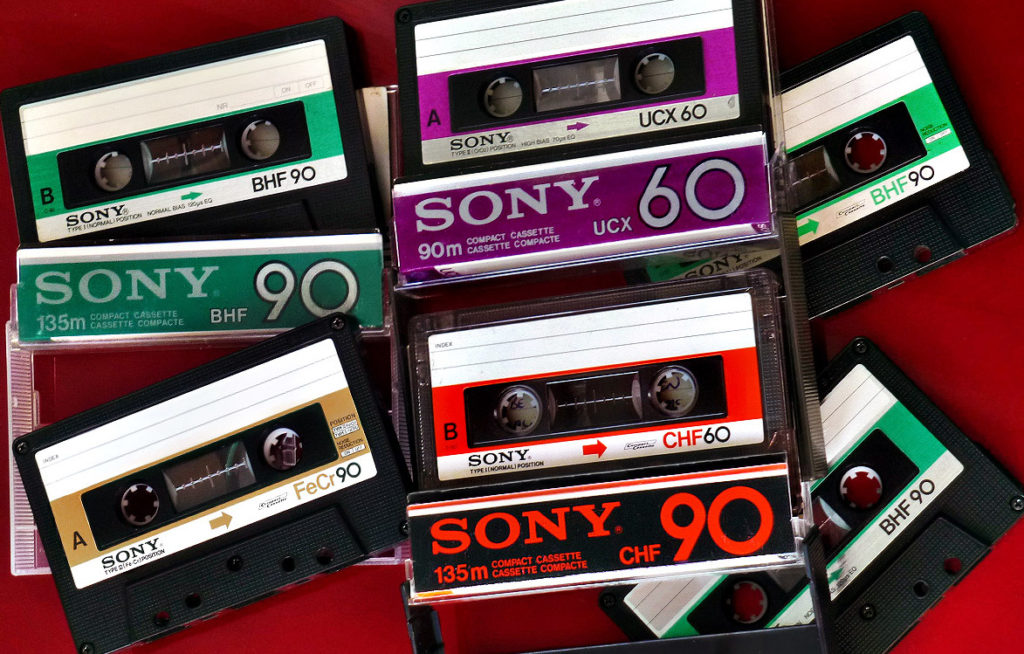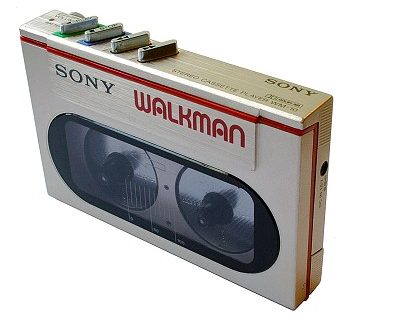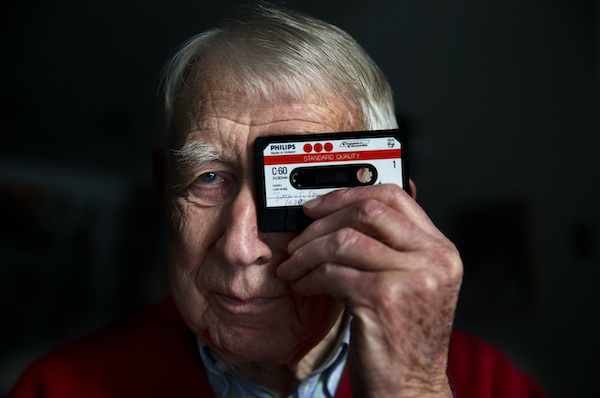 His invention, the cassette tape, revolutionized the way music was heard around the world. Then, when he was done with that, he helped create the compact disc. Lou Ottens, 94, died in Duizel, The Netherlands, on March 6, 2021. No cause of death was given by the Dutch newspaper NRC Handelsblad, which first reported Ottens’ death.
His invention, the cassette tape, revolutionized the way music was heard around the world. Then, when he was done with that, he helped create the compact disc. Lou Ottens, 94, died in Duizel, The Netherlands, on March 6, 2021. No cause of death was given by the Dutch newspaper NRC Handelsblad, which first reported Ottens’ death.
To rewind, Ottens, who had a background in engineering, began working for the Philips corporation in 1952. Promoted to the position of head of product development, he and his Belgian employees created a portable tape recorder that sold briskly. Frustrated with the large reel-to-reel tape recording systems that were ubiquitous at the time, Ottens got to work on a recorder that, he hoped, would fit inside of a typical jacket pocket.
Naturally, such a machine would require a smaller tape, and by 1963 Ottens had developed a tape, enclosed in plastic casing, that was “smaller than a pack of cigarettes,” as an early advertising slogan put it. When Japanese engineers at the SONY company began making a tape that was equally small, Ottens cut a deal with the company whereby SONY would use the mechanism developed by Philips. Ultimately, more than 100 billion standard cassette tapes were sold.
Related: Remember the “Maxell guy”?
The format became ubiquitous as cassette recorders and players of all kinds flooded the market. The cassette “mixtape,” which allowed users to choose music from favorite recordings and arrange songs in an order they preferred, was considered revolutionary—prior to that, record companies created albums with specified sequences and users had few options to rearrange music to their personal taste. The SONY Walkman, introduced in 1979, allowed fans to listen to music on the go, with headphones, a precursor to today’s cellphones. It, too, became ubiquitous.
Watch the trailer for a documentary on the cassette tape
Fast forwarding, by the late ’70s, even as the analog cassette tape was still a dominant format, Ottens was involved in the creation of the digital compact disc, or CD, which would virtually kill the cassette and also go on to sell hundreds of billions of units—before public taste turned toward streaming and digital downloads in more recent years.
Related: The SONY Walkman was a game-changer
Ottens, who retired in 1986, was asked at one point if he had any regrets. His reply: that SONY, not Philips, had invented the Walkman.
He also confessed that the sound of the CD was superior to that of the cassette.
Listen to Bow Wow Wow’s song “C30 C60 C90,” inspired by the cassette mixtape
[Editor’s note: Shortly after the passing of Mr. Ottens, Best Classic Bands received the following email from one Johan Van Leer, who disputed some of the information that was being reported here and elsewhere. In fairness to Van Leer, we are publishing his email below, with the caveat that BCB has not verified his claims.
“With reference to the recent passing of Lou Ottens, please note the following.
“Not long after I resigned my employment with PHILIPS in Eindhoven, the Netherlands and emigrated to the US, the Dutch electronic giant decided to move its Consumer Audio R & D as well some manufacturing to Hasselt, in Belgium.
“Articles and obits mentioned Mr. Ottens as the inventor, in 1962, of the Philips CASSETTE – but he merely suggested to take the 1958 RCA VICTOR TAPE CARTRIDGE, scale down its dimensions by 50% and the magnetic tape from 1/4″ width to 1/8”.
“A clear impossible task as these drastic changes brought with it several mechanical problems causing to interrupt or completely stop recording, or playback, as per the continuously changing the amount of tape and thus changing the speed on the small take-up and supply reels.
“It was Philips Hasselt’s mechanical engineer Piet van der Lely (1923 – 2003) who completely solved this draw-back making use of his hobby namely automobiles !
“When visiting Hasselt, in the late 60’s, he told me about similarities in a car’s front wheels when turning a corner and the difference in rotating.
“Nowhere is van der Lely mentioned as the man who made the Cassette System work and marketable.”
Johan van Leer]
 For years, Sony was the leader in elegantly designed high-end consumer electronics products. On July 1, 1979, they introduced a product: the Walkman, a portable device that allowed people to listen to music while, well, walking.
For years, Sony was the leader in elegantly designed high-end consumer electronics products. On July 1, 1979, they introduced a product: the Walkman, a portable device that allowed people to listen to music while, well, walking.
To call the device revolutionary is a grand understatement.
In subsequent years, Sony continued to refine the product until it reduced the size of its new model, the WM-10, to that of the traditional plastic cassette case, which at the time was a tremendous breakthrough.
Credit for inventing the cassette tape is given to Lou Ottens, who had a background in engineering, and began working for the Philips corporation in 1952. Frustrated with the large reel-to-reel tape recording systems that were ubiquitous at the time, Ottens got to work on a recorder that, he hoped, would fit inside of a typical jacket pocket.
By 1963 Ottens had developed a tape, enclosed in plastic casing, that was “smaller than a pack of cigarettes,” as an early advertising slogan put it.
Writing in the New York Times in 1983 about the original Walkman’s introduction two decades later, home electronics columnist Hans Fantel observed: “Nobody could have foreseen at the time that the new gadget would quickly grow into an international craze, a new way of experiencing music, and an occasional traffic hazard.”
It was compact and at $100 – equivalent to around $350 today – was reasonably affordable. Imagine: you could travel and listen to a dozen or so of your favorite songs in the palm of your hand! We want one!
Watch the introductory commercial for the WM-10
Related: Remember the Maxell “Blown-Away Guy”?
- Radio Hits July 1973: On the Road to Shambala - 07/17/2025
- Steve Miller Band Cancels Entire 2025 Tour Due to… Weather - 07/16/2025
- Robert Plant Reveals ‘Saving Grace’ Album, Tour - 07/16/2025







2 Comments so far
Jump into a conversationwhat a coincidence! Just a month ago I put back on the track my k7tape recorder after 15+ year pause, a Sony TC 118SD, made in South Korea. Tapes are ok, enjoing a lot.
Thanks for the history lesson on cassettes =
they were much better than 8-track tapes.
RIP Lou & thanks for your input/work on CDs!